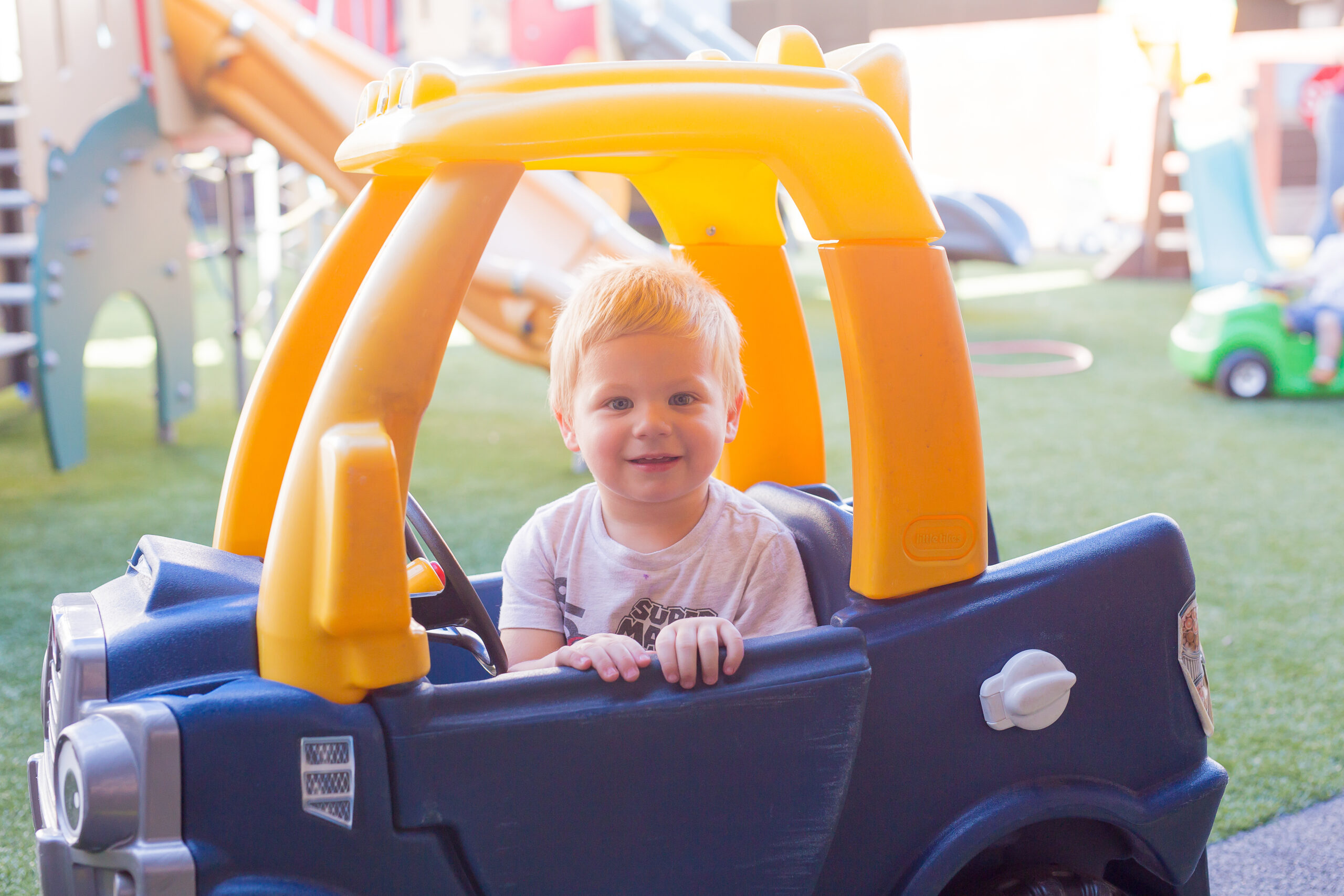When Lauren LaBelle’s son, Levi, was around 9 months old, she began to have concerns about his behaviors. He seemed overly sensitive to loud noises and new people frightened him.
“He also wasn’t responding to his name at all, and his reactions seemed more intense and extreme than normal,” LaBelle says.
Her concerns continued to grow as Levi began demonstrating social anxiety, preferring to play independently instead of engaging with other kids, and struggled with breaking from routines.
LaBelle had a co-worker whose daughter was diagnosed with autism, and she recommended looking into SARRC. LaBelle did so, and decided to enroll Levi in a SARRC clinical research trial for toddlers aimed at improving the early detection of autism through the use of an investigational device that tracks the eye movement of young children. Part of the research included SARRC’s traditional diagnostic process, and that’s when Levi received a diagnosis of autism at 26 months.
“After that, I knew I wanted to get Levi into SARRC’s Community School because my co-worker’s daughter had a very positive experience in the program,” LaBelle says.
Enrolling in the Community School
SARRC boasts three Community School campuses in Maricopa County that offer a high-quality early childhood education to children ages 15 months to 5 years.
“The cornerstone of this unique program is that inclusion is embedded in the core of everything that we do,” says Beatriz Orr, clinical director of the SARRC Community School. “Children who are neurotypical and those who have a diagnosis of autism are learning alongside each other without knowing who has autism and who doesn’t. They are all learning compassion and acceptance – something we hope they will carry with them for a lifetime.”
After enrolling in the Community School in early 2019, Levi had a really hard time entering the preschool building. His fear of new people had to be overcome, so SARRC’s team of therapists got to work devising creative ways to manage his hesitancies using wagon or scooter rides to encourage him.
“Their compassion and the effort they put into making him feel more comfortable made a huge difference for us,” LaBelle says. “It took many months for him to overcome this challenge and then COVID hit, and everything changed for him again.”
Navigating Setbacks
Although the Community School did not operate in person during the height of the pandemic, Levi continued to receive services from a therapist five days a week for six to eight hours per day.
“He had a SARRC therapist, Caley, from his Community School class who was like an extended member of our family. She worked on goals with him in our house, and he continued to progress. His vocabulary developed, he improved his eye contact and he got better at handling transitions,” LaBelle says.
When the Community School reopened, he had an easier time adjusting and was able to play and communicate with the other children.
“I love the model because there are kids with and without autism learning together,” LaBelle says.
There is so much fun that all kids can learn from this program socially, emotionally and academically. They also have an extremely low child-to-teacher ratio, which is something you just don’t get at other preschools.”
Orr agrees and is quick to point out how the program benefits all children, even those without autism.
“Our Community School teachers support and guide all students during challenging situations to build coping, problem-solving and social communication skills all in a positive, empathetic, and supportive way. Every child has individual strengths and areas for growth, so our teachers individualize their support for each student to meet them where they’re at.”
Today, Levi is enrolled in a general education kindergarten class and he’s thriving. According to Orr, that’s a goal that many families in the Community School achieve with various levels of support.
“I always knew he was going to be successful,” LaBelle says. “No matter what, I knew he was going to rise above this because we got him the help he needed.”

